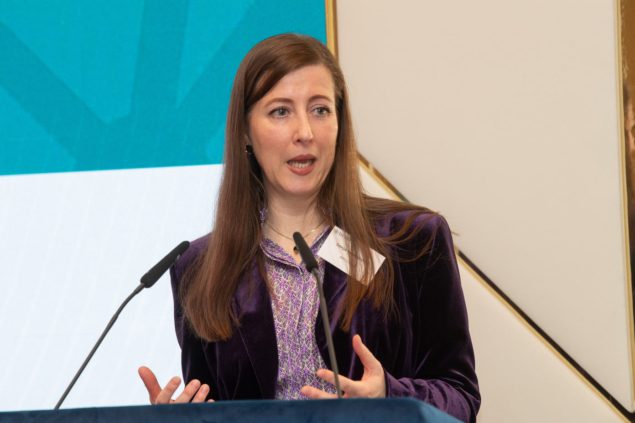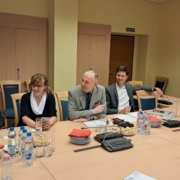No business without people – social innovations for a future-proof labour market – Sonja van Lieshout at the BCSDH Business Breakfast
A third of the world’s workforce earns less than is necessary for their living. Eliminating the living wage gap could positively impact $4.5 trillion of global GDP. “Reducing inequality requires coordinated action from all stakeholders, including companies. Initiating change requires the recognition of humans as assets in the value-creation processes of companies,” – emphasised Sonja van Lieshout, President of the World Employment Confederation Europe and Global Head of Public Affairs at Randstad, at the Business Breakfast and Professional Forum of the Business Council for Sustainable Development in Hungary (BCSDH) held on March 26, which focused on Human Value. The participants were welcomed by Holczinger Norbert, Head of the Sustainable Finance Division at the National Bank of Hungary, the host of the day.
 In addition to climate change and biodiversity loss, growing inequalities are our world’s most urgent sustainability challenge. Growing inequalities have become systemic risks globally, threatening not only individual communities or companies but entire economies and societies.
In addition to climate change and biodiversity loss, growing inequalities are our world’s most urgent sustainability challenge. Growing inequalities have become systemic risks globally, threatening not only individual communities or companies but entire economies and societies.
“Inequalities are an obstacle to social and economic progress, which also affects the performance of companies. At the same time, inequalities are also a consequence of our systems, which we can change. However, this requires the highest level of commitment, immediate action, and systemic change. We believe that the business sector must play a leading role in achieving this desired rapid change,” – said Attila Chikán Jr., President of BCSDH, in his opening speech.


“Companies can do most to reduce inequalities through their employees. Social innovation is key to moving forward, which means the holistic implementation of new solutions for working, learning and social protection for the benefit of workers, employers and society in general. This will lead to future-proof labour markets that work for all,” — emphasised Sonja van Lieshout, who was invited to speak by Randstad Hungary’s professional support.


In a closed professional forum following the presentation, business leaders and corporate, academic and civil experts discussed the current state of play and challenges associated with Human Value, such as the risk to business created by polarisation and loss of trust, creating value by valuing human capital, and the links between physical and mental health and efficiency, and explored several business best practices and solutions. These three main topics were led by Attila Kelemen, CEO of ProSelf Zrt, Sándor Baja, Managing Director of Randstad Hungary and Gréta Nagy, Managing Director of Dandelion Kft.


 The insights from the professional forum, including the challenges and enabling factors that were identified, will be further processed during executive roundtable discussions in May. Our goal is to provide recommendations for companies on the topic of human value, which will be presented at the BCSDH Business Lunch in October. It is important to encourage companies to act in this area and assist them in taking the most important steps.
The insights from the professional forum, including the challenges and enabling factors that were identified, will be further processed during executive roundtable discussions in May. Our goal is to provide recommendations for companies on the topic of human value, which will be presented at the BCSDH Business Lunch in October. It is important to encourage companies to act in this area and assist them in taking the most important steps.
We hereby thank our Time to Transform 2030 sponsor:










